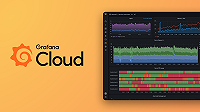loki.source.kubernetes_events
loki.source.kubernetes_events tails events from the Kubernetes API and converts them into log lines to forward to other loki components.
You can specify multiple loki.source.kubernetes_events components by giving them different labels.
Usage
loki.source.kubernetes_events "<LABEL>" {
forward_to = <RECEIVER_LIST>
}Arguments
The component starts a new reader for each of the given targets and fans out log entries to the list of receivers passed in forward_to.
You can use the following arguments with loki.source.kubernetes_events:
By default, loki.source.kubernetes_events watches for events in all namespaces.
A list of explicit namespaces to watch can be provided in the namespaces argument.
By default, the generated log lines are in the logfmt format.
Use the log_format argument to change it to json.
These formats are also names of LogQL parsers, which can be used for processing the logs.
Note
When watching all namespaces, Alloy must have permissions to watch events at the cluster scope (such as using a ClusterRoleBinding). If an explicit list of namespaces is provided, Alloy only needs permissions to watch events for those namespaces.
Log lines generated by loki.source.kubernetes_events have the following labels:
namespace: Namespace of the Kubernetes object involved in the event.job: Value specified by thejob_nameargument.instance: Value matching the component ID.
If job_name argument is the empty string, the component will fail to load.
To remove the job label, forward the output of loki.source.kubernetes_events to a loki.relabel component.
For compatibility with the eventhandler integration from static mode, job_name can be set to "integrations/kubernetes/eventhandler".
Blocks
You can use the following blocks with loki.source.kubernetes_events:
The > symbol indicates deeper levels of nesting.
For example, client > basic_auth refers to a basic_auth block defined inside a client block.
client
The client block configures the Kubernetes client used to tail logs from containers.
If the client block isn’t provided, the default in-cluster configuration with the service account of the running Alloy Pod is used.
The following arguments are supported:
At most, one of the following can be provided:
authorizationblockbasic_authblockbearer_token_fileargumentbearer_tokenargumentoauth2block
no_proxy can contain IPs, CIDR notations, and domain names. IP and domain names can contain port numbers.
proxy_url must be configured if no_proxy is configured.
proxy_from_environment uses the environment variables HTTP_PROXY, HTTPS_PROXY, and NO_PROXY (or the lowercase versions thereof).
Requests use the proxy from the environment variable matching their scheme, unless excluded by NO_PROXY.
proxy_url and no_proxy must not be configured if proxy_from_environment is configured.
proxy_connect_header should only be configured if proxy_url or proxy_from_environment are configured.
authorization
credential and credentials_file are mutually exclusive, and only one can be provided inside an authorization block.
Warning
Using
credentials_filecauses the file to be read on every outgoing request. Use thelocal.filecomponent with thecredentialsattribute instead to avoid unnecessary reads.
basic_auth
password and password_file are mutually exclusive, and only one can be provided inside a basic_auth block.
Warning
Using
password_filecauses the file to be read on every outgoing request. Use thelocal.filecomponent with thepasswordattribute instead to avoid unnecessary reads.
oauth2
client_secret and client_secret_file are mutually exclusive, and only one can be provided inside an oauth2 block.
Warning
Using
client_secret_filecauses the file to be read on every outgoing request. Use thelocal.filecomponent with theclient_secretattribute instead to avoid unnecessary reads.
The oauth2 block may also contain a separate tls_config sub-block.
no_proxy can contain IPs, CIDR notations, and domain names. IP and domain names can contain port numbers.
proxy_url must be configured if no_proxy is configured.
proxy_from_environment uses the environment variables HTTP_PROXY, HTTPS_PROXY, and NO_PROXY (or the lowercase versions thereof).
Requests use the proxy from the environment variable matching their scheme, unless excluded by NO_PROXY.
proxy_url and no_proxy must not be configured if proxy_from_environment is configured.
proxy_connect_header should only be configured if proxy_url or proxy_from_environment are configured.
tls_config
The following pairs of arguments are mutually exclusive and can’t both be set simultaneously:
ca_pemandca_filecert_pemandcert_filekey_pemandkey_file
When configuring client authentication, both the client certificate (using cert_pem or cert_file) and the client key (using key_pem or key_file) must be provided.
When min_version isn’t provided, the minimum acceptable TLS version is inherited from Go’s default minimum version, TLS 1.2.
If min_version is provided, it must be set to one of the following strings:
"TLS10"(TLS 1.0)"TLS11"(TLS 1.1)"TLS12"(TLS 1.2)"TLS13"(TLS 1.3)
Exported fields
loki.source.kubernetes_events doesn’t export any fields.
Component health
loki.source.kubernetes_events is only reported as unhealthy if given an invalid configuration.
Debug information
loki.source.kubernetes_events exposes the most recently read timestamp for events in each watched namespace.
Debug metrics
loki.source.kubernetes_events doesn’t expose any component-specific debug metrics.
Component behavior
The component uses its data path, a directory named after the domain’s fully qualified name, to store its positions file.
The positions file is used to store read offsets, so that if a component or Alloy restarts, loki.source.kubernetes_events can pick up tailing from the same spot.
The data path is inside the directory configured by the --storage.path command line argument.
Example
This example collects watches events in the kube-system namespace and forwards them to a loki.write component so they’re written to Loki.
loki.source.kubernetes_events "example" {
// Only watch for events in the kube-system namespace.
namespaces = ["kube-system"]
forward_to = [loki.write.local.receiver]
}
loki.write "local" {
endpoint {
url = sys.env("LOKI_URL")
}
}Compatible components
loki.source.kubernetes_events can accept arguments from the following components:
- Components that export Loki
LogsReceiver
Note
Connecting some components may not be sensible or components may require further configuration to make the connection work correctly. Refer to the linked documentation for more details.



